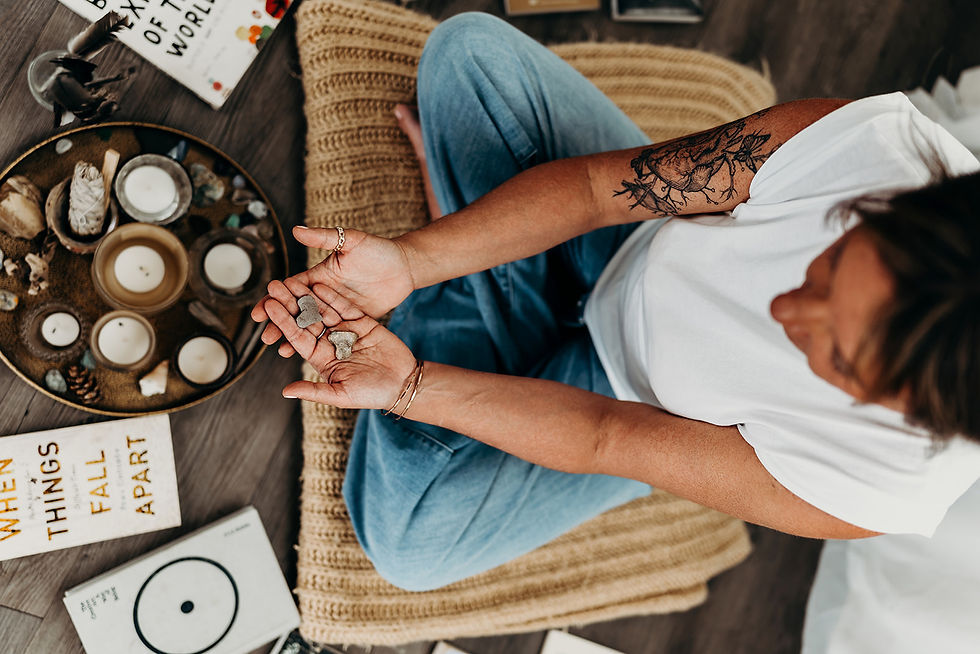For Real
- Meghan St. Clair

- Sep 5, 2019
- 2 min read
Updated: Mar 18, 2020
Avoiding eye contact, I stand before the judge and jury. Casual, yet deliberate, measurements are made. The worth of one’s self is tricky to calculate, especially in direct proportion to: a man, a child, a friend, a career, a mountain, a stranger, a student, a parent, a risk. These insecurities, the sum total of a life not fully realized. I let slip from my hands crumbling pieces of hope and dreams; expectation and resentment. My inclination is to turn away. Perfection is an ugly mask to wear. Still, I am drawn to my reflection.
Occasionally what is seen cannot be unseen; what is heard cannot be unheard. The irrevocable seed was planted in my brain years ago – fake it ’til you make it. Despite numerous attempts to cull it from the common vernacular, my white knuckle grasp holds onto its shiny luster as a survival tool. It’s a mindset I’m not willing to abide by for long. I hold it like a newly found diamond, and then quickly set it down. Rinse, repeat.
We would not ask a classroom of students to pretend they knew the information they had not yet learned.
We would not begin throwing clay and expect a perfect mug.
We write every day in the practice of giving life to words.
Conversely.
We call ourselves a writer even if we don’t know how or where are words will be received.
We practice being a potter despite wonky handles or unbalanced bases.
We show up with incomplete knowledge, able to learn new things.
Faking, pretending, showing up as anything different from who we are in the moment is a problematic life strategy. First and foremost, it creates discord between our thoughts, our words, and our actions. We are off-kilter in evaluating our strengths and weaknesses; our self worth is skewed. Second, pretending in terms of “making it” causes us to focus on a finish line. We are setting ourselves up for inevitable failure. Finally, a mindset fixed only on an outcome may cause us to hold onto broken dreams longer than we should. We are less likely to recover from setbacks when our thinking is centered on future expectations rather than reality.
My thinking is generally wobbly when it comes to authenticity. I deeply want that for myself. In reality, we must face both the good and bad, which is a hard skill to master. My authentic mind is often in competition with my people-pleasing superpower. It creates a natural conflict. That is the truth. But there is hope.
Taking a hard look at myself; strengths and weaknesses, I created a list of things we are able to do instead of faking our way through life. Want to know more? SIGN UP HERE to receive my sometimes weekly email. Saturday morning’s edition has all the things, including the following: a strategy guide for showing up where you are as you are, how to use FB as a healthy conversation starter, and a link to a piece on authenticity by one of my favorite educators.






Comments